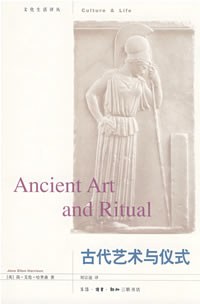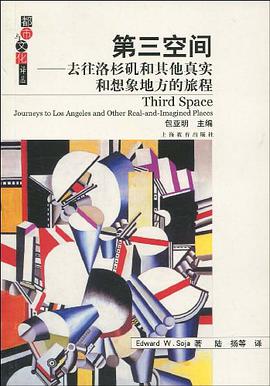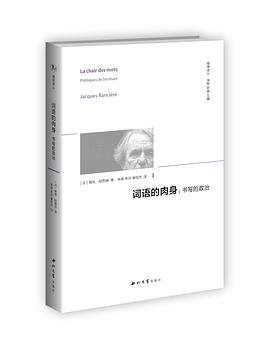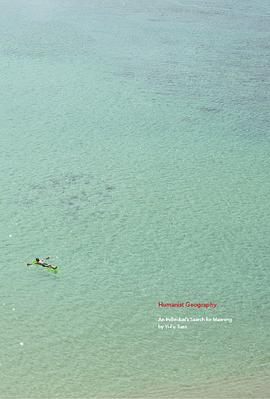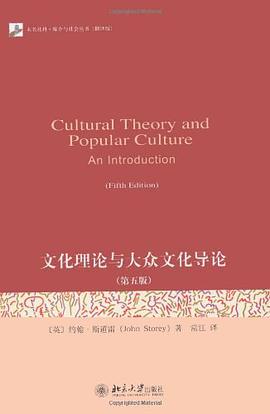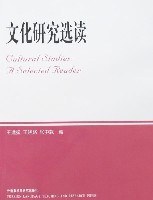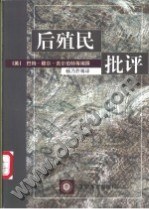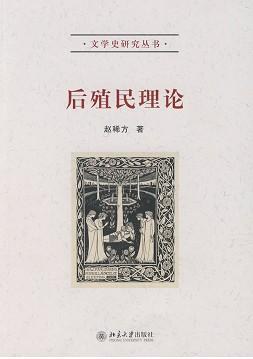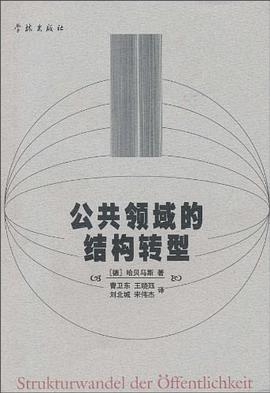文化研究
第三空间 豆瓣
Third Space: Journeys to Los Angeles and Other Real-and-Imagined Places
作者:
[美]Edward W.Soja
译者:
陆扬
上海教育出版社
2005
导论/路线/序曲
第一部分 发现第三空间
第一章 亨利·列斐伏尔不平凡的旅程
起点
路径
趋近
到达
第二章 空间性的三元辩证法
透过“阿莱夫”展望第三空间
他者化—第三化
再次概括/在前进之前
第三章 探究差异构成的空间:边缘随笔
论后现代性构成的差异
与蓓尔·瑚克斯同在第三空间
第四章 增强第三空间的开放性
空间女权主义批判
后殖民批判
第五章 异形地志学:福柯与他者性的地理历史
第二次发现
与福柯同在第三空间
第六章 历史主义空间批判再表征
新的导论
固守历史主义
第二部分 内外洛杉矶
第七章 回忆:洛杉矶城堡的异形地志学
展览会印象
主要事件:象征市政中心
第八章 外城内部:后现代世界的日常生活
“托托,我有个感觉,我们是不在堪萨斯了”
奥兰治郡及其周围若干景观
结语:外城先行
第九章 一点困顿的刺激:阿姆斯特丹与洛杉矶的当代比较
在斯坝伊街
离开斯坝伊街
后记Ⅰ:自上而下和自下而上的观点
后记Ⅱ:后大都市预览
人名中英文对照表
参考论文、书目中英文对照表
第一部分 发现第三空间
第一章 亨利·列斐伏尔不平凡的旅程
起点
路径
趋近
到达
第二章 空间性的三元辩证法
透过“阿莱夫”展望第三空间
他者化—第三化
再次概括/在前进之前
第三章 探究差异构成的空间:边缘随笔
论后现代性构成的差异
与蓓尔·瑚克斯同在第三空间
第四章 增强第三空间的开放性
空间女权主义批判
后殖民批判
第五章 异形地志学:福柯与他者性的地理历史
第二次发现
与福柯同在第三空间
第六章 历史主义空间批判再表征
新的导论
固守历史主义
第二部分 内外洛杉矶
第七章 回忆:洛杉矶城堡的异形地志学
展览会印象
主要事件:象征市政中心
第八章 外城内部:后现代世界的日常生活
“托托,我有个感觉,我们是不在堪萨斯了”
奥兰治郡及其周围若干景观
结语:外城先行
第九章 一点困顿的刺激:阿姆斯特丹与洛杉矶的当代比较
在斯坝伊街
离开斯坝伊街
后记Ⅰ:自上而下和自下而上的观点
后记Ⅱ:后大都市预览
人名中英文对照表
参考论文、书目中英文对照表
词语的肉身 豆瓣
La chair des mots: Politiques de L'Ecriture
作者:
[法] 雅克·朗西埃
译者:
朱康
/
朱羽
…
西北大学出版社
2015
- 1
词语不是通过描写获得它们的力量的:而是通过命名,通过召唤,通过命令,通过谋划,通过引诱,它们才切入实存之物的自然性,才将人类安置在他们的道路上,把他们分离为诸多的共同体,又把他们统一在共同体之中。
这就是将在这里讨论的剧场,是文本赋予自身以躯体的方式,而它之所以化成躯体,是为了躲避被掷入世界的文字的命运,是为了摹仿它自身的运动,在这个运动的一端是思想的位置,是精神的位置,是生命的位置,是它由之而来的地方,另一端是它想要到达的地方:一个人类的剧场,在这一剧场中,言语变成了行动,拥有了诸多的灵魂,引导着诸多的躯体,并为它们的行走配上了节奏。
——朗西埃
朗西埃的思想在今天比在过去任何时候都更切于现实:在我们这个左翼迷失了方向的时代,对于我们将如何继续反抗的问题,他的写作提供了一种罕有的、一以贯之的概念化思考。
——齐泽克
这就是将在这里讨论的剧场,是文本赋予自身以躯体的方式,而它之所以化成躯体,是为了躲避被掷入世界的文字的命运,是为了摹仿它自身的运动,在这个运动的一端是思想的位置,是精神的位置,是生命的位置,是它由之而来的地方,另一端是它想要到达的地方:一个人类的剧场,在这一剧场中,言语变成了行动,拥有了诸多的灵魂,引导着诸多的躯体,并为它们的行走配上了节奏。
——朗西埃
朗西埃的思想在今天比在过去任何时候都更切于现实:在我们这个左翼迷失了方向的时代,对于我们将如何继续反抗的问题,他的写作提供了一种罕有的、一以贯之的概念化思考。
——齐泽克
Humanist Geography: An Individual‘s Search for Meaning 豆瓣
作者:
Yi-Fu Tuan 段义孚
University of Wisconsin Presscart
2012
- 9
For more than fifty years, Yi-Fu Tuan has carried the study of humanistic geography—what John K. Wright early in the twentieth century called geosophy, a blending of geography and philosophy―to new heights, offering with each new book a fresh and often unique intellectual introspection into the human condition. Humanist Geography: An Individual's Search for Meaning, his latest and last book, is a final testament of all that he has learned and encountered as a geographer.
In returning to and reappraising his entire career, from his time as a student to his life's work as an esteemed writer and university professor, Tuan emphasizes how humanistic geography can offer a younger generation of teachers, students, and scholars a path toward self-discovery, personal fulfillment, and even enlightenment. He argues that in the creative study of geography and of place can be found the wonders of the human mind and imagination, especially as they are understood by the senses.
This makes the book rather personal, but Tuan's intent is to show how wonderful life on our small planet can be, even as we must deal with nature's stringencies and our own deep flaws. And so his view of the future is hopeful, despite the life-long challenges that face us as individuals and societies. As for the individual, Tuan asks, "What are we humans to do?" "Is the individual the 'quintessence of dust' or the 'paragon of animals, noble in action but apprehensive like an angel'?" The answer, he says, depends on whether our view of the individual is purely secular or one that is grounded in religious faith.
Tuan opts for the latter, a personal blending of Buddhist traditions and a Christian outlook. It is his path to finding meaningful answers as to why we humans are here on Earth. Implicit in the book are the questions, "What is your way of searching?" "What is your path to understanding your place in the world?" To Tuan, humanist geography and the study of place can lead the way.
In returning to and reappraising his entire career, from his time as a student to his life's work as an esteemed writer and university professor, Tuan emphasizes how humanistic geography can offer a younger generation of teachers, students, and scholars a path toward self-discovery, personal fulfillment, and even enlightenment. He argues that in the creative study of geography and of place can be found the wonders of the human mind and imagination, especially as they are understood by the senses.
This makes the book rather personal, but Tuan's intent is to show how wonderful life on our small planet can be, even as we must deal with nature's stringencies and our own deep flaws. And so his view of the future is hopeful, despite the life-long challenges that face us as individuals and societies. As for the individual, Tuan asks, "What are we humans to do?" "Is the individual the 'quintessence of dust' or the 'paragon of animals, noble in action but apprehensive like an angel'?" The answer, he says, depends on whether our view of the individual is purely secular or one that is grounded in religious faith.
Tuan opts for the latter, a personal blending of Buddhist traditions and a Christian outlook. It is his path to finding meaningful answers as to why we humans are here on Earth. Implicit in the book are the questions, "What is your way of searching?" "What is your path to understanding your place in the world?" To Tuan, humanist geography and the study of place can lead the way.
文化理论与大众文化导论 豆瓣
9.3 (24 个评分)
作者:
(英) 斯道雷
译者:
常江
北京大学出版社
2010
- 7
《文化理论与大众文化导论(第5版)》是国际知名文化研究学者约翰·斯道雷所著之经典教材,在西方学界经久不衰,是公认的媒介与文化研究领域最为权威的综述性著作之一。《文化理论与大众文化导论(第5版)》对文化研究这一学科的历史,传统及当下的发展现状做了深入细致的分析,广泛涉猎文化主义,结构主义、马克思主义,女性主义和后现代主义等诸多重要的社会科学思潮,梳理国际学界对这一领域的最新研究成果,是文化研究、媒介研究、大众传播学,文艺批评以及新闻学等领城内学者与研究生阅读,参考的重要文献。《文化理论与大众文化导论(第5版)》是原著最新版的中译本。
后殖民理论 豆瓣
9.1 (11 个评分)
作者:
赵稀方
北京大学出版社
2009
- 10
《后殖民理论》内容简介:西方的反殖民思想,与殖民历史一样久远。早期西方反殖思想大体上可分为两种:一种是人道主义的道德批判,另一种是自由主义的经济批判。前者可以被称为欧洲殖民主义批评之父的拉斯·加萨斯(Las Casas)主教写于l542年的《简论印第安人的毁灭》(A Short Account of the Degtruction of America)一文为代表,后者可以亚当·斯密写于1776年的《国富论》为代表。应该说,l9世纪的马克思主义既继承又超越了上述人道主义道德批判和自由主义经济批判两种欧洲思想传统。在经济上,马克思、恩格斯一反亚当·斯密等人认为殖民主义不能使宗主国受益的说法,认为西方资本主义从根本上说就是殖民主义的产物。
公共领域的结构转型 豆瓣 Goodreads
Strukturwandel der Öffentlichkeit
9.0 (14 个评分)
作者:
[德] 尤尔根·哈贝马斯
译者:
曹卫东
/
王晓珏
…
学林出版社
1999
- 1
《公共领域的结构转型》的目的是分析“资产阶级公共领域(burgerlicheOffentlichkeit)。研究对象特别难以把握,这就对研究方法提出了挑战。首先,由于研究对象比较复杂,用单一某个学科的方法是难以奏效的。因此,我们必须把公共领域范畴放到传统“政治学”曾经关注的那样一个比较开阔的视野里加以探讨;①研究对象就其自身而言打破了社会科学各学科之间的界限。社会学和经济学、宪法学和政治学以及社会思想史等各学科一体化所带来的难题是很清楚的:从目前社会科学学科分化和专业化水平来看,没有谁能“掌握”多门学科,更不用说“掌握”所有学科了。
